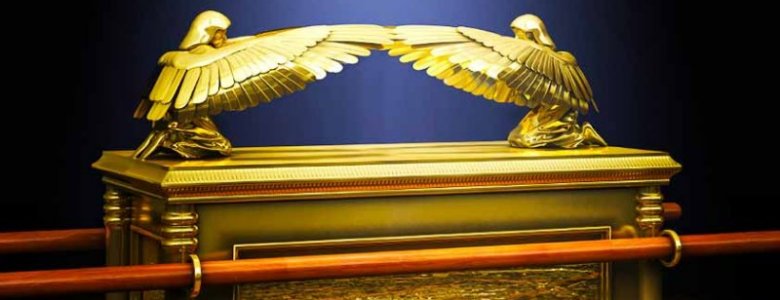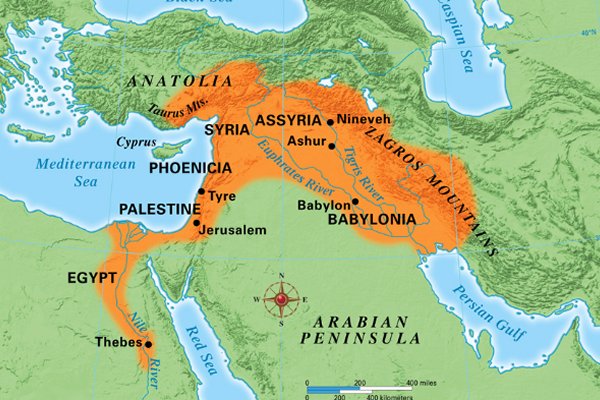BIBLE STUDY HOME

THE FALL OF JUDAH
Bible study by Pat Gaines
LESSON 1
The Fall of the Southern Kingdom
Following the death of Solomon, the Nation of Israel was divided into the Northern Kingdom, called Israel and the Southern Kingdom, called Judah. Henceforth I will refer to the Southern Kingdom as Judah. The Northern Kingdom fell because of idolatry to the Assyrians in 721 BC. At that time Hezekiah was king over Judah. God allowed Assyria to take the Northern Kingdom because of their idolatry. Their first king, Jeroboam I set up the golden calves at Dan and Bethel for his people to worship. Not one of the following kings tore down these idols nor discouraged the people from worshiping them. All of the kings of the Northern Kingdom were considered bad kings because of this idolatry. Hezekiah was king over Judah when the Northern Kingdom fell. Judah had several kings who were considered to be good kings because they would get rid of the places where the people worshiped idols and encourage worship of Jehovah God only. Hezekiah was one of these good kings. The scriptures for this lesson come from 2 Kings chapters 18-19.
[2 Kings 18:1-5] In the third year of Hoshea son of Elah king of Israel, Hezekiah son of Ahaz king of Judah began to reign. He was twenty-five years old when he became king, and he reigned in Jerusalem twenty-nine years. His mother’s name was Abijah daughter of Zechariah. He did what was right in the eyes of the Lord, just as his father David had done.
There are a few things I would like to say about these verses. Notice that it gives his mother’s name. These kings had multiple wives and the mothers had a great deal to do with the raising of their sons. His mother was the daughter of Zechariah who was a High Priest. I am sure he was raised worshiping God and being taught that idol worship was against God’s laws. Another thing, David was given as Hezekiah’s father. He was indeed his grandfather 14 generations back. This is not uncommon in Bible passages to call a man son of when it may be several generations back.
[2 Kings 18:4-6] He removed the high places, smashed the sacred stones and cut down the Asherah poles. He broke into pieces the bronze snake Moses had made, for up to that time the Israelites had been burning incense to it. (It was called Nehushtan.) Hezekiah trusted in the Lord, the God of Israel, There was no one like him among all the kings of Judah, either before him or after him. He held fast to the Lord and did not cease to follow him; he kept the commands the Lord had given Moses.
The high places, sacred stones and Asherah poles are all places where the people would go to worship idols. Asherah was a part of Baal worship. These are all fertility gods. The bronze snake was made while the Israelites were wondering in the wilderness. They became restless, tired of wondering, tired of not having enough water, tired of eating manna so they complained and God sent piousness snakes to bite them and many died. Then they cried to Moses to save them. So this bronze snake was made and if they looked on it they would not die. After that they made an idol out of it and worshiped it. [See Numbers 21:5-9]
In King Hezekiah’s fourth year, which was the seventh year of Hoshea son of Elah king of Israel, Shalmaneser king of Assyria marched against Samaria and laid siege to it. At the end of three years the Assyrians took it. So Samaria was captured in Hezekiah’s sixth year, which was the ninth year of Hoshea king of Israel. The king of Assyria deported Israel to Assyria and settled them in Halah, in Gozan on the Habor River and in the towns of the Medes. This happened because they had not obeyed the Lord their God, but had violated His covenant — all that Moses the servant of the Lord commanded. They neither listened to the commands nor carried the out. [2 Kings 18: 9-12]
Samaria was the capital city of the Northern Kingdom. It tells us it took the Assyrians 3 years to take the city. Ancient Samaria is now called the West Bank in modern day Jordan. It tells us here that Assyria took many captives out of Israel and relocated them in cities under Assyrian control. Assyria was one of the early nations to practice the relocating of captives. They chose the educated people, any who might claim rights to the throne, any who might become leaders and try to overthrow Assyrian rule. They left the farmers, shepherds and those who would keep the agriculture going and brought in Assyrian leaders and military commanders to control the people and protect their interests.
About ten years after the fall of the Northern Kingdom, Assyria came after Judah. Sennacherib, King of Assyria captured the larger fortified cities in Judah. Before, Hezekiah had refused to pay tribute to Assyria. It was a custom for aggressive nations to approach another nation with an ultimatum that if they did not pay a yearly fee or tribute in gold, silver or agricultural products then the aggressor would go to war against them. This time Sennacherib sent messengers to Jerusalem telling Hezekiah he had to pay tribute and then they would leave him in peace. Hezekiah chose to pay tribute to Assyria rather than go to war. Hezekiah paid Assyria 300 talents of silver and 30 talents of gold. A talent was about 60 pounds weight. At today’s price for gold that would be approximately $48, 096,000.00 for the gold alone. An expensive payoff!
But Sennacherib took the tribute and prepared to laid siege on Jerusalem anyway. [See 2 Kings 18:17-37] His leaders called out to the people to not trust Hezekiah, not trust their God, he could not save them. He were not as powerful as Assyria.
Hezekiah went into mourning and he sent the palace administrator, secretary and leading priests to Isaiah the prophet to seek God’s help.
[2 Kings 19:5-7] When King Hezekiah’s officials came to Isaiah, Isaiah said to them, “Tell your master, ‘This is what the Lord says: Do not be afraid of what you have heard-those words with which the underlings of the king of Assyria have blasphemed me. Listen! I am going to put such a spirit in him that when he hears a certain report, he will return to his own country, and there I will have him cut down with the sword.’”
True to God’s word, Sennacherib received a report that the King of Egypt was coming to fight against him. So he gets excited and sends messengers with a letter to Hezekiah bragging that Israel’s God cannot protect them. Assyria has already taken many large cities and they will take Jerusalem too, trying to get Hezekiah to surrender. But Hezekiah is depending on God.
[2 Kings 19:14-19] Hezekiah received the letter from the messengers and read it. Then he went up to the temple of the Lord and spread it before the Lord. And Hezekiah prayed to the Lord: “O Lord, God of Israel, enthroned between the cherubim, you alone are God over all the kingdoms of the earth. You have made heaven and earth. Give ear, O Lord, and hear; open your eyes, O Lord, and see; listen to the words Sennacherib has sent to insult the living God. It is true, O Lord, that the Assyrian kings have laid waste to these nations and their lands. They have thrown their gods into the fire and destroyed them, for they were not gods but only wood and stone, fashioned by man’s hands. Now, O Lord our God, deliver us from his hand, so that all kingdoms on earth may know that you alone, O Lord are God.
The words “enthroned between the cherubim, refers to the Ark of the Covenant that is covered with gold and has two cherubim, angels, with wings stretched across the top. This is the dwelling place of God with the Nation of Israel.
[2 Kings 19:20-21] Then Isaiah son of Amoz sent a message to Hezekiah: “This is what the Lord, the God of Israel, says: I have heard your prayer concerning Sennacherib king of Assyria.
“They have thrown their gods into the fire and destroyed them” refers to the gods of these cities that the Assyrians have taken. The nations had a national god, they had nature gods. The cities had their own personal god or gods.
[2 Kings 19:32-36] Therefore this is what the Lord says concerning the king of Assyria: “He will not enter this city or shoot an arrow here. He will not come before it with shield or build a siege ramp against it. By the way that he came he will return; he will not enter this city, declares the Lord. I will defend this city and save it, for my sake and for the sake of David my servant.”
God assures Hezekiah that the Assyrian king will not attack Jerusalem, God Himself will defend the city for David’s sake. God made a covenant with David found in 2 Samuel chapter 7.
[2 Samuel 7:16] “Your house and your kingdom will endure forever before me; your throne will be established forever.”
This covenant is fulfilled by Jesus Christ, descendant of David who reigns as the eternal king forever.
[2 Kings 19:35-37] That night the angel of the Lord went out and put to death a hundred and eighty-five thousand men in the Assyrian camp. When the people got up the next morning—there were all the dead bodies! So Sennacherib king of Assyria broke camp and withdrew. He returned to Nineveh and stayed there. One day, while he was worshiping in the temple of his god Nisroch, his sons Adrammelech and Sharezer cut him down with the sword, and they escaped to the land of Ararat. And Eserhaddon his son succeeded him as king.
God fulfilled his promise to Hezekiah that the Assyrians would not attach Jerusalem and that He would defend the city Himself. His angel killed 185,000 Assyrian soldiers. What do you suppose the Assyrians thought about Judah’s God when they woke up and found all their comrades dead? Sennacherib got up and headed for home! He had had enough of Judah’s God.
God’s word through Isaiah the prophet that Sennacherib would return to his own country and be cut down with the sword had come to pass. The promises of God always come to pass!
Previous ↔ Next
Lesson 1 • Lesson 2 • Lesson 3 • Lesson 4 • Lesson 5 • Lesson 6 • Lesson 7
